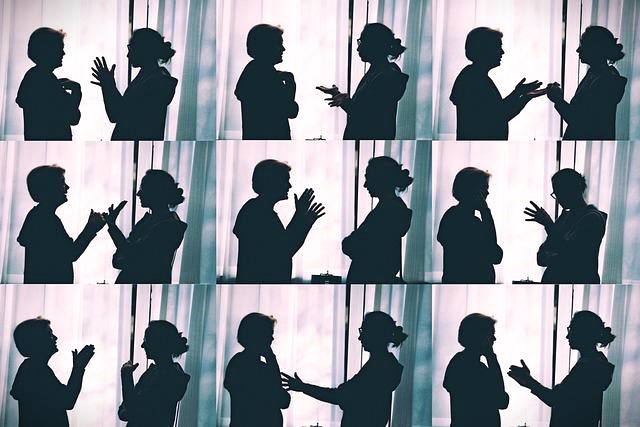
Friday Night
Rebi Levi bar Chama says in the name of Rebi Shimon ben Lakish: “A person should always incite the yetzer tov to fight against the yetzer hara” (Brochos 5a). At first, this might seem like walking up to a dangerous dog and pulling its ear, not prudent advice. As the expression goes: Let sleeping dogs lie.
Sleeping dogs perhaps but not the yetzer hara. It’s like terrorism. In the beginning, when terrorism used to only happen on occasion, security forces didn’t focus on it all the time. Remember the good old days when you could arrive at the airport about an hour before flight time and, after a light security check, board your plane in relative safety?
But when terrorism became more common, the people in charge realized that they had to start anticipating it. This meant assuming that an attack was always imminent and being prepared for it with intelligence reports and, properly trained anti-terrorism units. Now you have to come to the airport three hours before flight time, get thoroughly checked sometimes even twice, and board your plane wondering if a terrorist group figured out some way to get around all the extra security measures.
There is no greater personal terrorist than a person’s yetzer hara, which the Gemora says tries to kill a person every day (Kiddushin 30b). And the Chofetz Chaim says that even tzaddikim have to worry about their yetzer hara. If it can’t make a person sin outright, then it will make them sin accidentally as a way to get them to sin intentionally in the future.
What the Gemora is saying then is, that you can’t live your life as if attacks from the yetzer hara are only periodic events, and deal with them only when they occur. That’s spiritual suicide. It means that you have to anticipate from the moment you open your eyes in the morning to when you shut them at night, that the yetzer hara is lurking and will, without doubt, attack relentlessly throughout the day. You have to do your best to anticipate what the yetzer hara might do in any given situation, to act opposite to what God expects from you.
Because, and this is very important, it’s not only about choosing good over evil. It is also about choosing better over good, or excellent over better. The yetzer hara is a lot smarter than most people give it credit for. It knows not to try and get a person to do something they generally they would not do. It will instead tempt a person to spiritually underachieve, what halachah calls “bidieved,” which a person may have less of a problem with.
That tends to happen a lot more when a person has a casual approach to their yetzer hara. Some people don’t even see themselves falling below their own standard, or appreciate why their standard is not high enough. So therefore, the Gemora advises, a person has to always be on guard against the yetzer hara so they will strive to live up to the better standard.
Shabbos Day
THE GEMORA ALSO says:
Rebi Shimon ben Lakish said: “Anyone who is busy with Torah, suffering will distance itself from them” (Brochos 5a). The Chofetz Chaim used this statement to speak about how, in his time, people were finding it difficult to make time to learn Torah, and the effect it was having. Jews were getting more seriously sick and more often, or suffering from poverty, or from some other problem that came their way that did not occur in previous generations.
The Chofetz Chaim said that it seemed as if not even one person in a thousand was being spared. He added that anyone who could find time to learn Torah should run to shul or the Bais Midrash and learn as much as they could for as long as they could. Then it would be more likely that they would be protected against so many of the Heavenly “punishments” that seemed to be coming the way of the Jewish people because of their neglect of Torah study. As it says:
Therefore, as a flame of fire consumes stubble, and a flame shrivels straw, their root shall be like rot…for they despised the Torah of God, etc.” (Yeshayahu 5:24)
He also quoted the Chazal on the verse, “the voice is the voice of Ya’akov, etc.” (Bereishis 27:22), that says, as long as the voice of Ya’akov is heard loudly in the shuls and the study halls of Torah, we can avert what it says here:
If you forget the Torah of your God, I will forget your children as well. (Hoshea 4:6).
There is nothing untrue about any of this. If Chazal have said it, it has to be true. If the Gemora repeats it in several places, it has to be true. Nevertheless, there are probably many who though they would like to believe it, have a difficult time doing so because they have seen talmidei chachamim who have become ill. Or they know others who have suffered in different ways, especially with poverty. That kind of knocks out Rebi Shimon ben Lakish’s statement of the category of reliable general principles. Are those cases exceptions to the principle, and if yes, why?
Some might answer by saying that once upon a time it was true. But times have changed and so have the Jewish people, and not necessarily in a good way. This has increased hester panim, God’s hiding of His Divine Providence, necessitating less obvious miracles, like learning Torah to get well or to stay healthy. The only problem is that a lot of these health issues affected the generation of Chazal as well.
Others might say that when Chazal talked about learning Torah, they didn’t mean just learning Torah. They meant that a person learned Torah with mesiras Nefesh, self-sacrifice, with tremendous love and devotion. As time has gone on, the generations have become increasingly weaker and the level of mesiras Nefesh has dropped considerably. So, the Gemora may be accurate, but our fulfillment of it may not be.
The only problem with this explanation is that God adjusts His expectations based upon the abilities and circumstances of the generation. Furthermore, it would seem that there were definitely people over the millennia who lived up to the Gemora, relatively speaking, and still suffered illness, poverty, and pogroms.
None of this means that a person is free to abandon Torah learning at any time for any period of time they could learn. But it would be nice to know if and when the statement in the Gemora holds true in any generation, and why not if it doesn’t.
Seudas Shlishis
I DON’T HAVE a definitive answer for this. What I do have is the Leshem’s answer to a similar question regarding bitachon, or trust in God. After telling us that bitachon can get you out of any kind of trouble, he knows that we’re asking, “So why have some of the greatest trusters in God suffered, and often terribly?” He answers this:
Do not wonder about the many holy people from earlier generations who suffered much, as to why they did not make use of the trait of bitachon and certainly be saved. Instead, they used a different trait, acceptance of suffering with love, like Rebi Akiva said, “All of my life I was bothered…when will I get the opportunity to fulfill it?” (Brochos 61b), and as Rebi Elazar bar Rebi Shimon said, “Come my brothers and dear ones” (Bava Metzia 84b). There were those who did not want to trouble their Creator, and instead used mesiras Nefesh—self-sacrifice, that is, they gave themselves to The Holy One, Blessed is He, to do with them as He pleased. They specifically did not want to trouble their Creator to do their will, like Rebi Yehuda ben Babba said, “I am before them like a stone that has no one to turn it over” (Sanhedrin 14a). (Drushei Olam HaTohu, Chelek 2, Drush 5, Anaf 4, Siman 5)
In other words, had they chosen to, these “holy” people could have avoided all of their troubles by relying upon their bitachon to save them. Many others did. But sometimes they chose not to for some greater good, or at least God knew that they would have if He had asked them. Knowing from their daily devotion to Him and Torah, God knows what the heart of a tzaddik prefers to do.
Likewise, the Torah of a true talmid chacham could heal them in all ways, if they let it. But sometimes the greater good requires personal sacrifices, especially of the pure and holy. Being devoted to God and His cause, such servants prefer to do whatever God deems necessary for the generation, and gladly and lovingly surrender their right to such Torah-generated Divine protection.
Ain Od Milvado, Part 62
KESER IS THE highest of the 10 sefiros. It is considered so spiritual and holy that we won’t know its level of light until well into the World to Come. Therefore, it is represented by the word Ayin, spelled Aleph-Yud-Nun, which means nothing, because to us it is as if it doesn’t exist at all.
At the other end of the system is Malchus, the most revealed of all levels. It is really the light of Keser that has been constricted and filtered by the other eight sefiros in-between the two extremes. We live by this light and it is what God uses to run our world. Therefore, it is represented by the word Ani—I, which is the same three letters as Ayin, just in a different order: Ayin-Nun-Yud. It’s as if God says, “Here I am.”
Well, yes and no. On the level of Keser there literally is nothing else but God, but nothing else as well. On the level of Malchus, there is so much to see and experience, but it is harder to see and relate to God. The only exceptions are overt miracles, when higher levels of light make it down to our world without all the filtering.
But that is the challenge of life and purpose of man. When a person dissects the “natural” world in search of God, it is like looking for the Ayin within the Ani. That’s when ain od Milvado goes from theory to practice, and the “ani” becomes “Ayin” instead.
We don’t just get rewarded for doing this in the World to Come. We get to experience some of the reality of Ayin in this world as well, and all the pleasures of this very temporal world can never match what this means in terms of spiritual quality of life.


